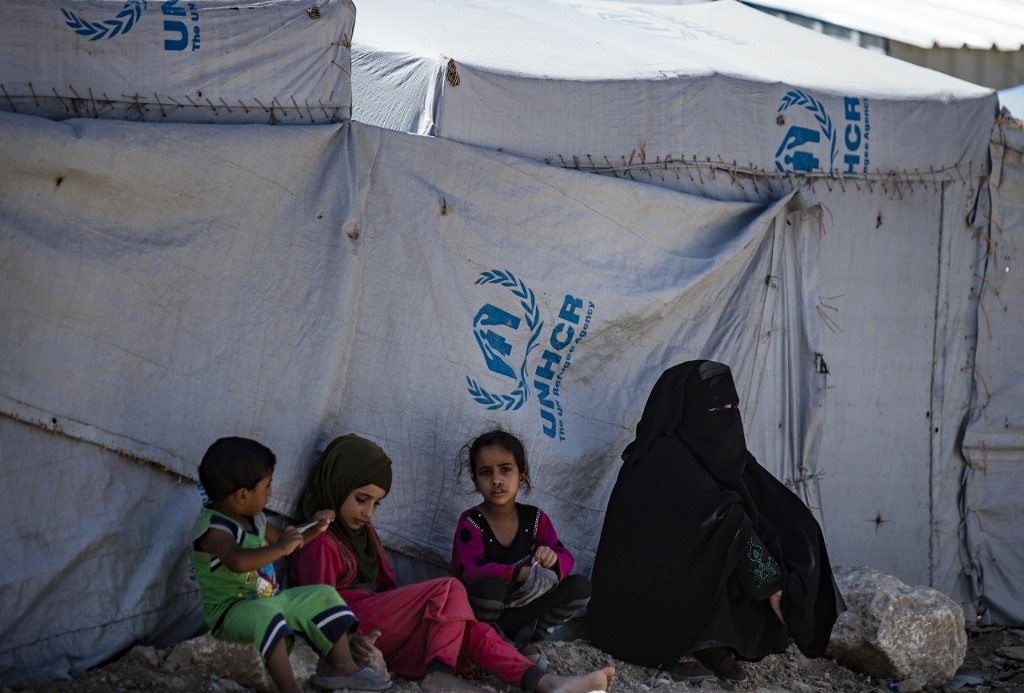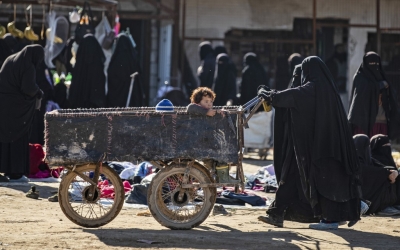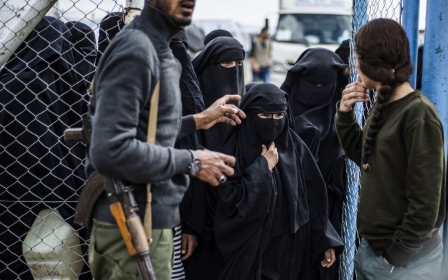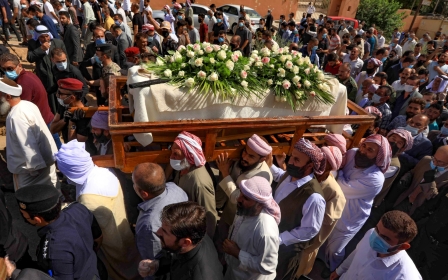Germany and Finland repatriate 23 citizens from Syria

Germany and Finland repatriated 23 of their women and children citizens from Syria, they both announced on Sunday, describing them as humanitarian cases.
"I am very relieved that we were able to repatriate another 12 children and three mothers from camps in northeastern Syria yesterday," German Foreign Minister Heiko Maas said in a statement.
New MEE newsletter: Jerusalem Dispatch
Sign up to get the latest insights and analysis on Israel-Palestine, alongside Turkey Unpacked and other MEE newsletters
Maas said the repatriations were "humanitarian cases, primarily orphans and children who were ill - cases in which a repatriation was deemed particularly necessary and urgent".
Some of the repatriated nationals were being investigated for allegedly belonging to the Islamic State. Maas said it is not legally possible to repatriate children without their mothers.
Finland's foreign ministry said it had brought home six children and two adult mothers because it was the only way to protect the children held at the al-Hol camp in northeastern Syria, where Kurdish-led forces have detained suspected former IS members.
"Under the constitution, Finnish public authorities are obligated to safeguard the basic rights of the Finnish children interned in the camps insofar as this is possible," it said.
According to Helsinki, more than 9,000 foreign women and children, two-thirds of them children, are still being held in the al-Hol and Roj camps in northeastern Syria, housing suspected IS family members and sympathisers.
Many European nations have resisted repatriating their nationals from the camps because of the security risks, it said.
'Wives of jihadists'
According to German media reports, the three repatriated German women are aged between 21 and 38 and the children are aged between two and 12.
The three women were "wives of jihadists" of the Islamic State group and "are in very poor health," a spokesman for the Kurdish administration's foreign relations office, Kamal Akif, told AFP.
One of the German women was detained on arrival in Frankfurt, a statement by the anti-terrorist prosecutors' office said.
As well as allegedly belonging to IS, one of the women, identified as Leonora M, aged 21, is suspected of using a young Yazidi woman as a slave.
Her husband was a member of the Islamic State group's "secret services," the prosecutors' office said.
London-based group Rights and Security International, in a report in November described the camps as "violent, unsanitary and inhumane".
It said conditions in the camps had led to the avoidable deaths of hundreds of babies and infants, while detainees had faced "inhuman and degrading treatment" from guards belonging to the Syrian Democratic Forces (SDF) , the Kurdish-led coalition that runs the camps.
The SDF has began preparing to hold its own trials, frustrated at the reluctance of Europe and the United States to repatriate their own citizens, but has said it also has not been given support in gathering evidence.
Middle East Eye delivers independent and unrivalled coverage and analysis of the Middle East, North Africa and beyond. To learn more about republishing this content and the associated fees, please fill out this form. More about MEE can be found here.





